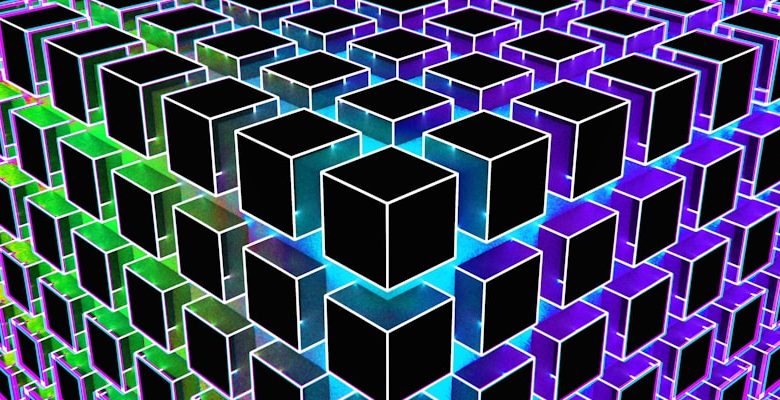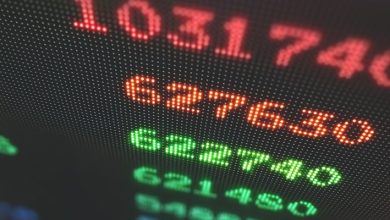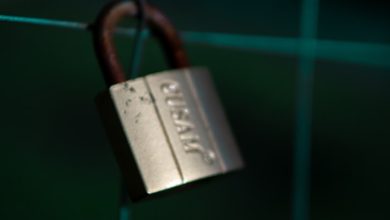How Decentralized Autonomous Organizations are Shaping the Future

- Understanding the Concept of Decentralized Autonomous Organizations
- The Rise of DAOs in Various Industries
- Challenges and Opportunities in Implementing DAOs
- The Potential Impact of DAOs on Traditional Organizations
- Exploring the Role of Blockchain Technology in DAOs
- Regulatory Considerations for Decentralized Autonomous Organizations
Understanding the Concept of Decentralized Autonomous Organizations
Decentralized Autonomous Organizations (DAOs) are a new and innovative way of organizing and governing a group of people without the need for a central authority. In a DAO, decisions are made collectively by its members through voting mechanisms, smart contracts, and other decentralized tools.
One of the key concepts behind DAOs is the idea of autonomy. Unlike traditional organizations where decisions are made by a central authority, DAOs operate autonomously based on predefined rules and protocols. This allows for greater transparency, accountability, and efficiency in decision-making processes.
DAOs are often built on blockchain technology, which ensures that all transactions and decisions are recorded on a secure and immutable ledger. This not only increases trust among members but also reduces the risk of fraud and corruption.
Another important aspect of DAOs is their decentralized nature. By distributing decision-making power among all members, DAOs eliminate the need for intermediaries and middlemen, allowing for more direct and democratic governance.
Overall, DAOs represent a significant shift in how organizations are structured and governed. By leveraging blockchain technology and decentralized principles, DAOs are shaping the future of collaboration, innovation, and governance in a more transparent, efficient, and democratic way.
The Rise of DAOs in Various Industries
Decentralized Autonomous Organizations (DAOs) have been gaining traction across various industries in recent years, revolutionizing the way businesses and communities operate. These innovative entities are reshaping traditional organizational structures by leveraging blockchain technology and smart contracts to enable transparent, efficient, and decentralized decision-making processes.
One industry that has seen a significant rise in the adoption of DAOs is the finance sector. DAOs are being used to create decentralized investment funds, manage assets, and facilitate peer-to-peer lending, all without the need for intermediaries. This not only reduces costs but also minimizes the risks associated with centralized financial institutions.
Another sector where DAOs are making a big impact is the art world. Artists and collectors are utilizing DAOs to create digital art marketplaces, manage royalties, and even crowdfund art projects. By decentralizing the art market, DAOs are democratizing access to art and empowering artists to have more control over their work.
DAOs are also disrupting the governance space, with communities using DAOs to make collective decisions, allocate resources, and govern decentralized platforms. This has the potential to increase transparency, accountability, and inclusivity in decision-making processes, leading to more equitable outcomes for all stakeholders involved.
As DAOs continue to evolve and gain mainstream acceptance, we can expect to see them playing a more prominent role in shaping the future of various industries. From supply chain management to healthcare to real estate, the possibilities for DAOs are endless, offering a glimpse into a more decentralized and democratized world.
Challenges and Opportunities in Implementing DAOs
Implementing Decentralized Autonomous Organizations (DAOs) presents both challenges and opportunities for businesses and communities. One of the main challenges is the lack of legal frameworks and regulations surrounding DAOs, which can lead to uncertainty and potential risks for participants. Additionally, the complexity of smart contracts and blockchain technology can be a barrier to entry for those unfamiliar with the technology.
However, there are also numerous opportunities for organizations looking to implement DAOs. DAOs can help increase transparency and accountability within an organization, as decisions are made collectively by members rather than a centralized authority. This can lead to more efficient decision-making processes and greater trust among participants.
Furthermore, DAOs have the potential to revolutionize traditional business models by enabling new forms of governance and collaboration. By leveraging blockchain technology, DAOs can create decentralized ecosystems where value can be exchanged seamlessly without the need for intermediaries.
In conclusion, while there are challenges to overcome in implementing DAOs, the opportunities they present in terms of transparency, efficiency, and innovation are vast. As businesses and communities continue to explore the potential of DAOs, we can expect to see a shift towards more decentralized and autonomous forms of organization in the future.
The Potential Impact of DAOs on Traditional Organizations
The potential impact of DAOs on traditional organizations is significant. Decentralized Autonomous Organizations have the potential to revolutionize the way businesses operate by eliminating the need for centralized control and decision-making. This shift towards a more decentralized model can lead to increased efficiency, transparency, and trust within organizations.
One of the key benefits of DAOs is their ability to streamline decision-making processes. By utilizing smart contracts and blockchain technology, DAOs can automate many functions that are traditionally carried out by human employees. This not only reduces the potential for human error but also speeds up the decision-making process, allowing organizations to respond more quickly to changing market conditions.
Furthermore, DAOs can help to reduce costs by eliminating the need for middlemen and intermediaries. This can lead to lower overhead costs and increased profitability for organizations that adopt this model. Additionally, DAOs can provide a more democratic and inclusive decision-making process, allowing all stakeholders to have a voice in the direction of the organization.
Exploring the Role of Blockchain Technology in DAOs
Decentralized Autonomous Organizations (DAOs) are revolutionizing the way businesses operate by utilizing blockchain technology. Blockchain technology provides a secure and transparent way to manage transactions and data, making it an ideal solution for DAOs.
Blockchain technology ensures that all transactions within a DAO are recorded on a public ledger that cannot be altered. This transparency builds trust among members and eliminates the need for intermediaries.
Smart contracts, which are self-executing contracts with the terms of the agreement between buyer and seller directly written into lines of code, are a key component of DAOs. These contracts are stored on the blockchain and automatically execute when predetermined conditions are met.
By using blockchain technology, DAOs can operate autonomously without the need for central management. This decentralized approach empowers members to make decisions collectively, creating a truly democratic organization.
In conclusion, blockchain technology plays a crucial role in shaping the future of DAOs by providing a secure, transparent, and efficient way to manage operations. As the adoption of blockchain technology continues to grow, we can expect to see DAOs become even more prevalent in various industries.
Regulatory Considerations for Decentralized Autonomous Organizations
When it comes to regulatory considerations for decentralized autonomous organizations (DAOs), there are a number of important factors that need to be taken into account. As DAOs operate on a decentralized basis without a central authority, there are unique challenges when it comes to compliance with existing regulations.
One of the key issues that regulators are grappling with is how to classify DAOs. Are they to be treated as traditional companies, investment funds, or something entirely new? This classification will have significant implications for how DAOs are regulated and what rules they will need to follow.
Another important consideration is the issue of liability. In a traditional company, there are clear lines of accountability when it comes to legal responsibility. However, in a DAO where decisions are made collectively by a network of participants, it can be much more challenging to determine who should be held liable in the event of a legal dispute.
Additionally, there is the question of jurisdiction. DAOs operate on a global scale, with participants from around the world coming together to collaborate on various projects. This can make it difficult to determine which laws and regulations apply to a particular DAO and its activities.
Overall, as DAOs continue to grow in popularity and influence, regulators will need to work closely with industry participants to develop a regulatory framework that ensures both innovation and investor protection. Finding the right balance will be crucial to shaping the future of decentralized autonomous organizations.



